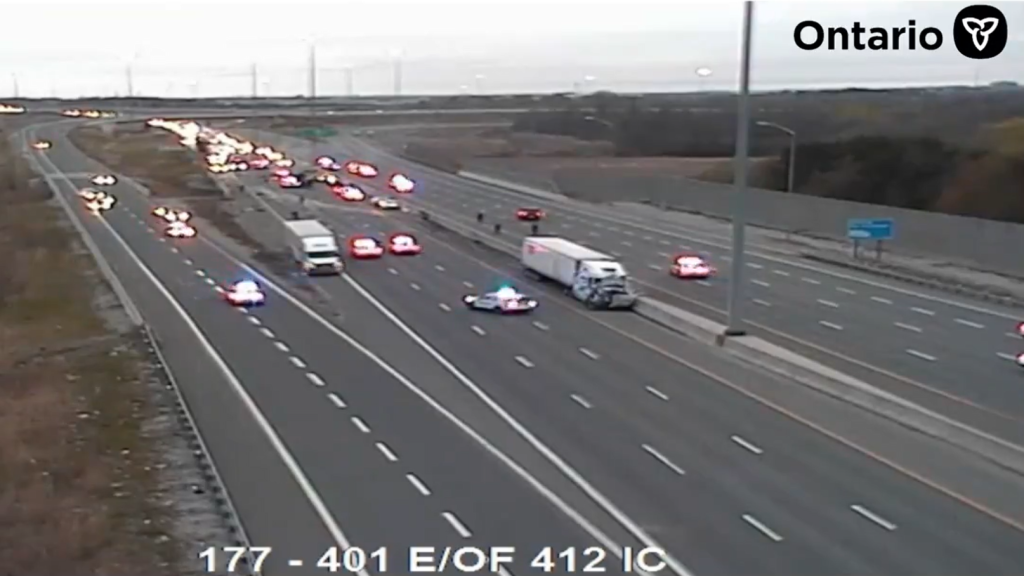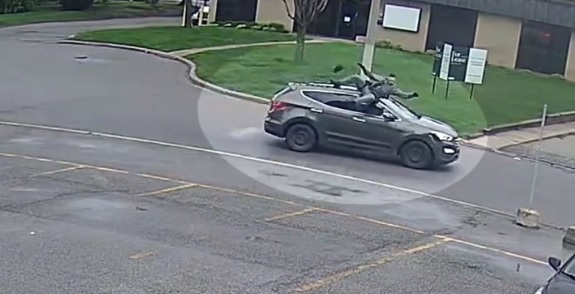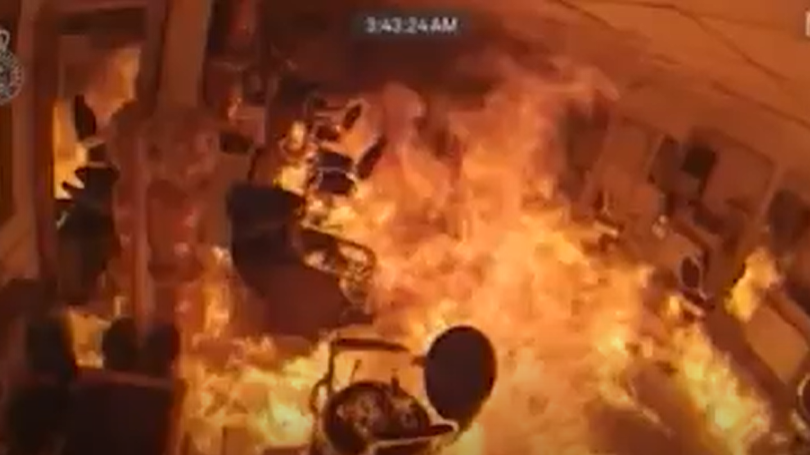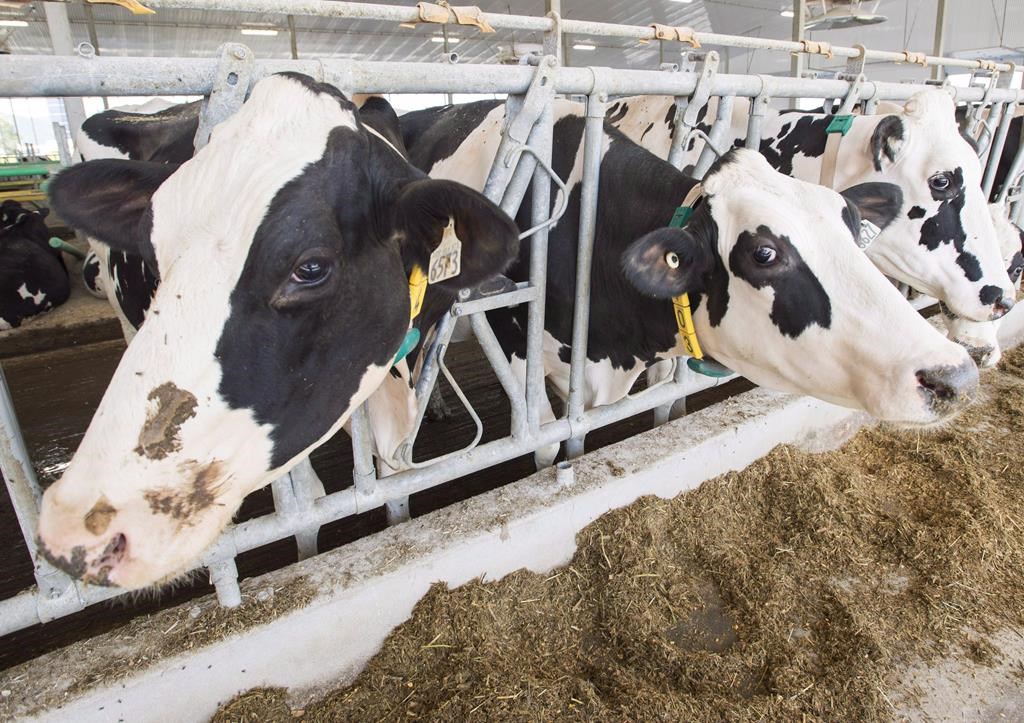Trudeau praises benefit of sharing intelligence with the U.S. and others
Posted May 25, 2017 4:09 am.
Last Updated May 25, 2017 12:47 pm.
This article is more than 5 years old.
Prime Minister Justin Trudeau said Canada will continue as usual when it comes to sharing intelligence with allies, even as U.S. President Donald Trump is being accused of playing fast and loose with sensitive secrets.
“The track record has shown that collaboration and co-operation between allies, friends and partners has saved lives and keeps all of our citizens safe,” Trudeau said Thursday in Brussels, where he is attending a meeting of the North Atlantic Treaty Organization.
“We are going to continue to collaborate and to work together to ensure we’re doing everything we can to keep citizens and our communities safe.”
Related stories:
More raids in Manchester as soldiers protect key UK sites
Terrorism at centre stage as Trudeau heads to Europe for NATO, G7 summits
Canada dives deep into data to make case to U.S. on NAFTA, says Freeland
The prime minister made the remarks when asked whether he had any concerns with an agreement by NATO to increase intelligence-sharing, particularly when it comes to foreign fights, as part of efforts to curb the threat of terrorism.
The White House has come under fire in recent days over revelations that Trump shared Israeli intelligence in a meeting with Russian Foreign Minister Sergey Lavrov.
The British government, meanwhile, has criticized U.S. officials for leaking sensitive details about the investigation into the deadly terrorist attack at a concert arena in Manchester, England this week.
Trudeau said that Canada has benefited from intelligence-sharing, but would not go into detail.
“We continue to be an important and trusted ally in the global intelligence community,” Trudeau said.
“There are many, many occasions upon which we have directly participated and in other occasions directly benefited from information-sharing between security agencies and at the highest level.”
NATO leaders are gathering in Brussels to discuss how they can better share the cost of defence and co-ordinate efforts in the fight against terrorism, but the main motivation behind this ad hoc meeting is to convince Trump, who once called the military alliance “obsolete,” it is still relevant today.
As part of those efforts, NATO Sec.-Gen. Jens Stoltenberg confirmed Thursday morning the military alliance would agree to formally join the U.S.-led coalition against the group calling itself the Islamic State of Iraq and the Levant.
“NATO joining the coalition to defeat (ISIL) is a strong political message of unity in the fight against terrorism,” Stoltenberg said.
All 28 NATO allies, including Canada, are already part of the anti-ISIL coalition, and the military alliance has been involved in training Iraqi forces.
Still, Trump had been urging the alliance to take on a bigger role. In an address to NATO members Thursday, he said members must pay their fair share on defense.
Watch the video below or click here.
Stoltenberg said that by formally joining the coalition, NATO will be better able to co-ordinate its efforts there, but it does not mean it will be involved in combat operations. It will mean practical support, such as more flying hours for its fleet of its surveillance aircraft, information-sharing and air-to-air refuelling.
NATO will also set up a new terrorism intelligence cell at its headquarters in Brussels and appoint a special co-ordinator to oversee the counter-terrorism efforts.
Trump has also been vocal about his demand for the other members of NATO to pick up their fair share of the tab when it comes to defence spending, which is where things could get uncomfortable for Trudeau.
Canada spends just over one per cent of its GDP on defence, which is just half of NATO’s target and puts the country among the bottom third of allies.
The Liberal government has argued that its contribution is bigger than the numbers suggest, pointing to its commitment to send up to 455 troops to head up a multinational mission in Latvia, as part of efforts to curb Russian aggression in the Baltics, as another way to contribute.
There seemed to be some support for that notion from Stoltenberg.
“This is not just about cash, but also modern capabilities and meaningful contributions to NATO’s missions, operations and engagements,” Stoltenberg said.
“Today, we will take steps to keep up the momentum,” he said, adding that NATO members will agree to come up with annual national plans to help them meet the target.
There has been much speculation about the role that Russia will play in the talks, especially given explosive allegations and domestic U.S. investigations of close ties between the White House and Russia.
Eastern European partners are concerned with Russian aggression and there are also growing concerns around the relationship between Turkey and Moscow, and their roles in the Syrian conflict.
Stoltenberg, though, tied the issue of Russia to the one of burden-sharing, which is top of mind for Trump.
“One of the reasons why we are investing in our collective defence, why we are increasing our presence in the eastern part of the alliance, is of course as a response to the aggressive actions of Russia we have seen in the Ukraine,” Stoltenberg said. “So, Russia is on NATO’s agenda,” he said.
Stoltenberg also said that NATO will assess its “level of support and the future of the mission” in Afghanistan, where the alliance currently has 13,000 troops involved in training.
“Our aim is to train the Afghan forces to enable them to step up their efforts in stabilizing their own country, countering Taliban but also fighting different terrorist groups in Afghanistan, including (ISIL),” Stoltenberg said.
Stoltenberg said NATO will decide on exact troop levels later this year, but will not return to a combat operation in Afghanistan.










